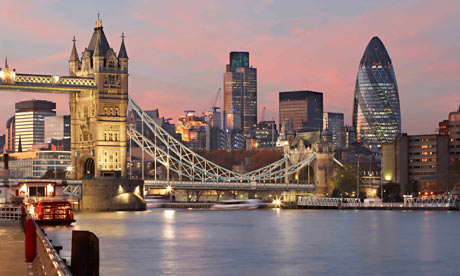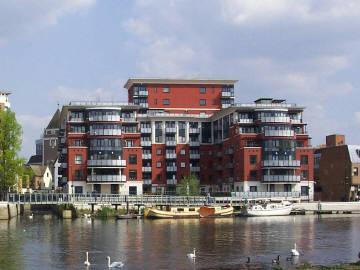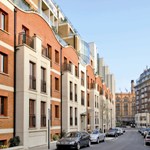506: Reason for Property Prices Rising in 2014
04-06-2014
 PropertyInvesting.net team
PropertyInvesting.net team
More objective guidance and insights for property investors. Our aim is to help you improve your investment returns, flag key risk areas and stimulate strategic thought so you can position your portfolio to maximize gain, for our five thousand website visitors a day and the thousands of people signed up to your Newsletter. This Newsletter cover one key topic:
Reasons for Property Prices Rising in 2014
Strong Growth: The UK economy is growing quite strongly at 2.7% - the fastest growing economy in Europe. It seems to be making up for lost time after a miserable period of stagnation from 2008 to late 2012. What seemed to have kick-started the economy was the Help to Buy scheme – whether this was  coincidence or not, no-one can really tell. But in March 2013 immediately after its announcement, property prices started shifting higher in almost all areas – and accelerated to new highs in London. Even though only a small proportion of the Help to Buy deposits are issued on London property – the scheme seems to have pressure banks into lending at high loan-to-values and hence drive easier access across the board to first time buyer finance.
coincidence or not, no-one can really tell. But in March 2013 immediately after its announcement, property prices started shifting higher in almost all areas – and accelerated to new highs in London. Even though only a small proportion of the Help to Buy deposits are issued on London property – the scheme seems to have pressure banks into lending at high loan-to-values and hence drive easier access across the board to first time buyer finance.
Pent Up Demand No Surprise: Because there was over 5 years worth of pent-up demand as these people age say 25-35 sat on the sidelines and rented for the period when the property market was in the doldrums – all of a sudden the market turned and these have jumped in before price rise to far. This has then rippled all through the property market as chains have developed and people have been able to move up the so called property ladder.
Job Creation: The number of jobs created has been very high – in direct and in-direct property related jobs – e.g. estate agents, builders, DIY shops, materials, maintenance, repair-upgrade etc. As house prices  have risen, consumer confidence has increased. Many people have claimed the London property market is in a bubble – something one could argue for or against. One thing is for sure – it has added huge amounts of jobs, boosted confidence, increased asset prices and made it more difficult for new entrants that have only just started thinking about buying – to get into the market in London. Outside London – in about 75% of areas, affordability is still very good but employment is less strong, the local economies are more fragile and people have gt far less money in general to spend on property because salaries are lower.
have risen, consumer confidence has increased. Many people have claimed the London property market is in a bubble – something one could argue for or against. One thing is for sure – it has added huge amounts of jobs, boosted confidence, increased asset prices and made it more difficult for new entrants that have only just started thinking about buying – to get into the market in London. Outside London – in about 75% of areas, affordability is still very good but employment is less strong, the local economies are more fragile and people have gt far less money in general to spend on property because salaries are lower.
Boom Period in SE: We have a situation quite close to what we had in 1988 when London and the SE was booming and the north was still struggling. At the time they called it the “North-South Divide”. This ran along a line from the River Severn to the River Trent or The Wash. There was also a Rory government at the time. London was the epicentre of the economy – new service jobs in the City. Big Bang had just happened in 1986. The SE property markets and estate agents were booming. There was this expression “The Yuppies” to describe the young affluent at the time. The parallels are quite marked – except most of the wealth resides with the over 50s now – the so called “Babyboomers” that were yesteryears Yuppies.
Slow To Raise Rates: Looking forward, we have an ultra-dovish Chairman of the Bank of England – Mark Carney – who is working closely with the Tory-Coalition to boost the economy. People shout he should raise interest rates now – and indeed – he probably should – but he won’t. This is a nice boom for the Tories before the May 2015 Election and frankly – it’s their only chance to get into power since there  are so many Labour voters - especially in the northern urban areas and Scotland. The housing market has a massive impact on consumer confidence, spending and the economy – plus tax receipts to balance the books. The property market in place like London at the current time has practically everything working in its favour:
are so many Labour voters - especially in the northern urban areas and Scotland. The housing market has a massive impact on consumer confidence, spending and the economy – plus tax receipts to balance the books. The property market in place like London at the current time has practically everything working in its favour:
· Ultra-low interest rates
· Increasing borrowing
· Reducing loan to value
· Rapidly growing population
· Massive inward migration
· Almost no building of new houses (only top-end luxury apartments)
· Expanding financial services and high-tech economies
· Rising fertility rate since 2002
· Five year’s worth of young people wanting to jump into the market
· Improving consumer confidence
· Increasing disposable income in 2014
· Reducing taxation in 2014
·  Rapidly expanding private sector
Rapidly expanding private sector
· Public sector that is not shrinking
· New infra-structure projects like Crossrail, Overground, Canary Wharf
· Safe haven status as autocratic regimes crumble and wars break-out
· Influx of wealthy French escaping punitive tax regime
· No wander London prices are shooting up. We can’t see the changing in 2014 – but in 2015 things could switch quite quickly if Labour get into power and:
· Markets are spooked and interest rates need to rise – borrowing costs rise
· Punitive taxes targeting Londoners and middle class and wealthy property owners
· Private sector shrinks in response to lack of confidence
· Public sector expands in the north as taxation rises to pay for this
· Wealthy Londoners and migrants take flight as the economy take a sharp dip
· Planning process expensive, time consuming, risky, complex
· Shortage of building land available - Brownfield land often expensive to re-generate, with Greenfield land out-of bounds. People want to live in nice detached houses in nice areas - the only properties being built are expensive flats in central/urban areas.
Disparate Groups: After the financial crisis of 2008, the US Federal Reserve started printing Trillions of dollars of money out of thin air. These dollars were exported all around the world and created bubbles in developing economies. Many of the economies are either communist, ex-communist or authoritarian and owners private enterprises in these countries as well as government officials have made gigantic amounts of money. As these countries have destabilized – starting with the Arab Spring – partly caused by higher inflation, food prices rocketing and oil/fuel prices rocketing – the owners of this new wealth have shifted much of it out of there risky countries and into London property – as a safe haven. After all, the UK legal system is good, property title is secure and taxes are relatively low. Visas can be obtained by wealthy people and the city is a playground for the super-rich elite. This is another key reason why London property prices keep rising – the US dollars have been exported to developing nations – then end up back in London via the super-rich elites. We frankly cannot see this changing in the next year as more instability and Trade Wars break out.
 Goldilocks: The UK CPI inflation has just dropped to 1.7% whilst interest rates remain at 0.5%. The strengthening pound has help reduce imported oil and gas prices along with food. Import prices have dropped which has helped inflation. Meanwhile wage inflation is running at over 2%, the first time in five years there has been a net increase in wealth for the average person. As you can imagine – this has stimulated a feel good factor that is bring people out to purchase properties – taking advantage of the relatively stable economy, job prospects and low mortgage financing costs. It frankly doesn’t get much better than this. It really looks like prices will continue to rise as they fan out from the prime London areas to places like Wandsworth, Leytonstone, Maidenhead – then to places like Leicester, Birmingham and Manchester. For 2014, it looks like many things are pointing in the direction of increasing prices.
Goldilocks: The UK CPI inflation has just dropped to 1.7% whilst interest rates remain at 0.5%. The strengthening pound has help reduce imported oil and gas prices along with food. Import prices have dropped which has helped inflation. Meanwhile wage inflation is running at over 2%, the first time in five years there has been a net increase in wealth for the average person. As you can imagine – this has stimulated a feel good factor that is bring people out to purchase properties – taking advantage of the relatively stable economy, job prospects and low mortgage financing costs. It frankly doesn’t get much better than this. It really looks like prices will continue to rise as they fan out from the prime London areas to places like Wandsworth, Leytonstone, Maidenhead – then to places like Leicester, Birmingham and Manchester. For 2014, it looks like many things are pointing in the direction of increasing prices.
New Government: There is a 50% chance at least of either a Labour victory in May 2015 or a Labour-Lib-Dem Coalition – especially if Scotland votes as is likely to stay part of the UK. So for all property investor in London and elsewhere, you have been warned, it won’t be a pretty sight if Labour get in frankly . The whole economy could decline sharply as market confidence disappears. We are not interested in who you might vote for – all we are interested in – is giving frank advice to property investors – and this is the reality in our view.
More Regulation: What you should also consider is that regulations on Landlords would take another notch upwards if Labour win power. Licencing is likely to be expanded across the board to all buy-to-let properties regardless of size, or at least in Labour controlled councils – this would likely drive rents higher as landlord started deserted the market and would lead to increasingly short rental supply. As property prices dropped, many landlords would probably sell up increasing the shortage of supply of rented accommodation – almost zero social housing is now being built – mainly because the public sector cannot afford the capital expenditure in view of the deficit etc. Furthermore, the introduction of a “mansion tax”  targeting middle class Londoner would see prime and mid-level property prices start to drop. Talk of a tax on a home with paper value of £1 million misses the point that many ordinary working families – e.g. a 3 bedroom terrace in Fulham – have a property worth £1 million – but they are not rich. They might have a £700,000 mortgage and massive taxes already.
targeting middle class Londoner would see prime and mid-level property prices start to drop. Talk of a tax on a home with paper value of £1 million misses the point that many ordinary working families – e.g. a 3 bedroom terrace in Fulham – have a property worth £1 million – but they are not rich. They might have a £700,000 mortgage and massive taxes already.
Summary: The key point is that the current optimism and view of house prices could rapidly turn the other direction in the whole of the UK if Labour win power. Sterling would come under pressure, interest rates would have to rise and general inflation would rise – with property price deflation starting. The Tory Coalition have managed to stabilize the situation after the financial crisis of 2008 and massive overspending. But this confidence can evaporate if the markets lose confidence and believe the government would increase public spending, taxes, deficits and put more regulations on business – just like it did in France, along with Argentina and Venezuela.
We hope this Newsletter has help provide some context for UK property investors - if you have any queries, please contact us on enquiries@propertyinvesting.net

